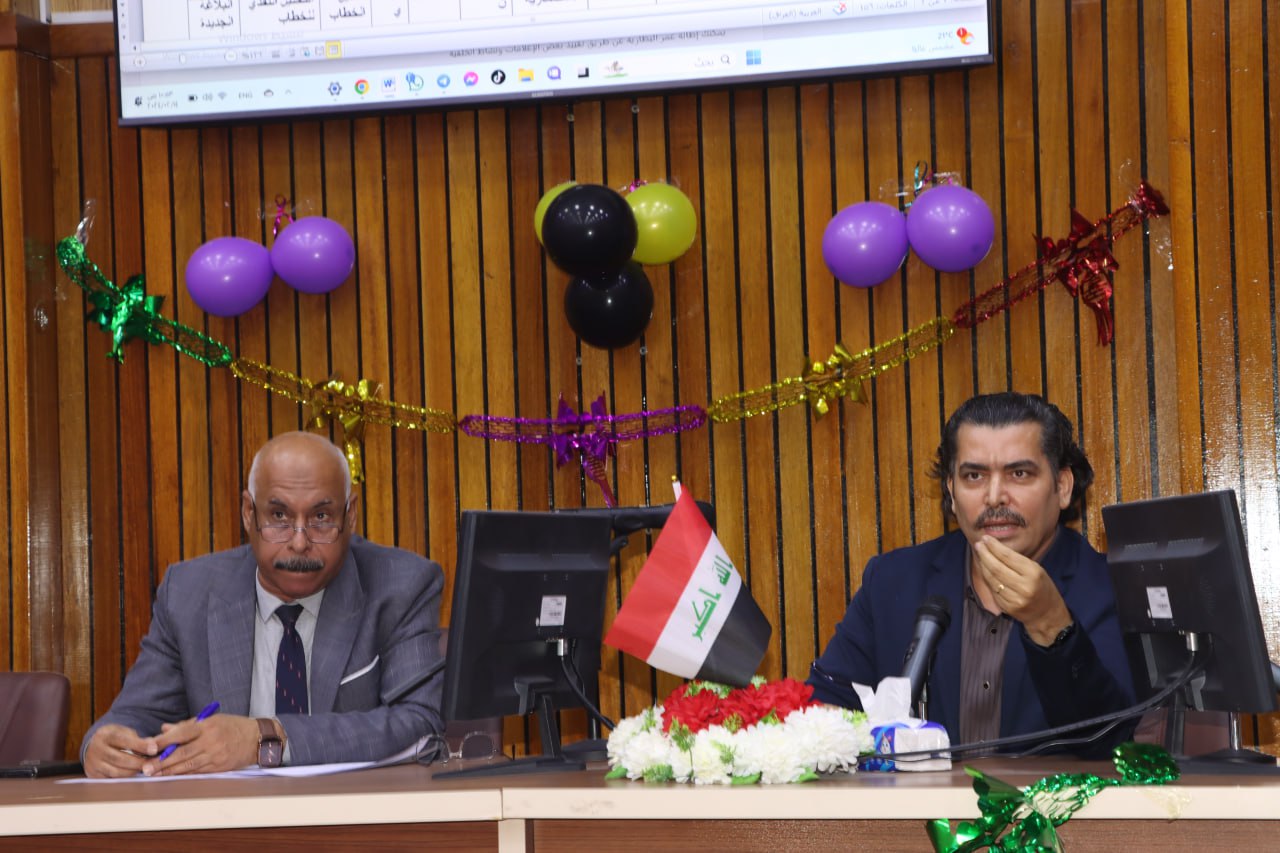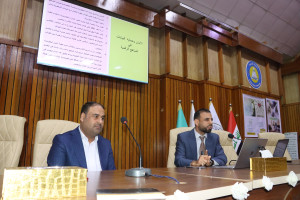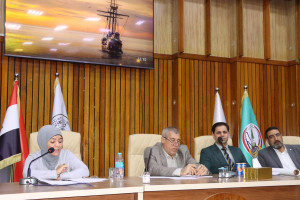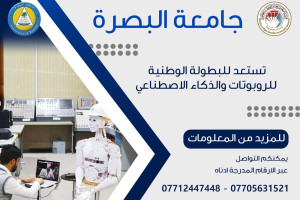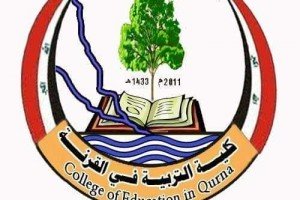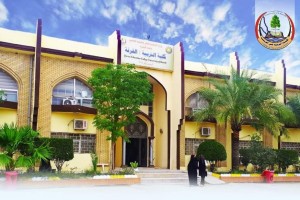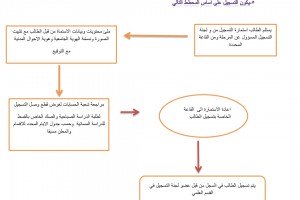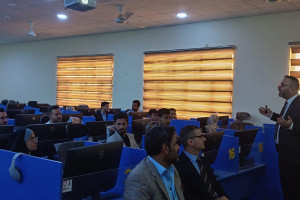
The Qurna College of Education at the University of Basra, Department of Arabic Language, held a scientific symposium entitled (Cultural Studies and Discourse Analysis... Reviews in the Inter-Field)
The symposium in which Professor Dr. Aqeel Abdul-Hussein Khalaf, from the College of Arts at the University of Basra, participated, included a critical paper entitled (Bringing cultural studies closer to the disciple) in which he presented the principles and introductions that led to that type of study, especially what was common in the sixties and seventies and up to the nineties of the century. The twenty years in which the marginal prevailed at the expense of the central and the culture of the marginalized prevailed after the favor and attention had been directed towards the dominant and dominant pole of culture. This is what leads to saying that there is a shift in the world of global criticism. After the culture of authority dominated, the orientation became towards the culture of the marginalized, while the professor’s paper was Dr. Salah Hassan Hawi, from the College of Arts at the University of Basra, also titled (The Problem of Overlapping between Cultural Studies and Critical Discourse Analysis), focusing his talk on what prevailed in world culture and then Arabic, and on the studies that focused on the text, especially in the studies of Faircliffe, Van Dyck, and Vodak Levin. He pointed out the overlap and interconnectedness between cultural studies and critical analysis, yet each of them takes its own path. Dr. Salah Hawi pointed out that critical analysis studies started from a linguistic reality and then spread to critical and literary studies in general, such that the differences between the two sides have been erased or almost erased. . The session was moderated by Professor Dr. Sabah Abdel-Rida Asyoud, from the College of Education in Gourna, who presented an introductory introduction to what was prevalent in the new cultural and critical arena in its latest developments, which broke the horizon of elitist centralization and undermined the old rhetoric and criticism, so that the search for a new horizon containing them could be done. Then the studies were directed towards Revealing implicit patterns in the discourse, which paved the way for studies of race, gender, sexuality, identity, dominance, etc.
